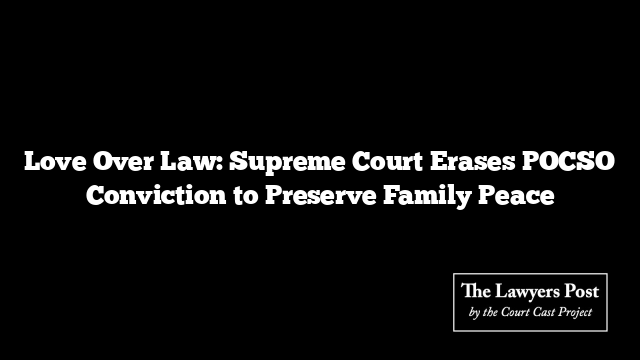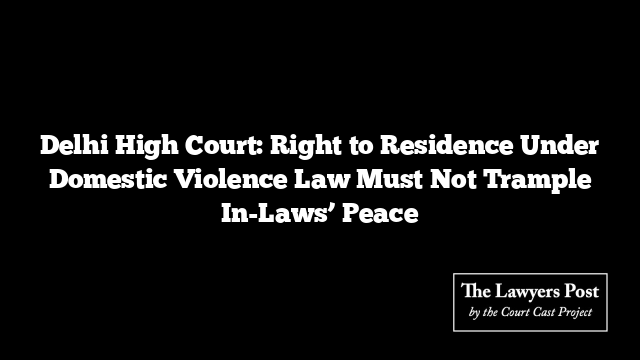In a rare display of empathy over rigidity, the Supreme Court has struck down the conviction of a man previously sentenced under the POCSO Act—recognizing that the relationship in question was born out of love, not coercion.
A bench comprising Justices Dipankar Datta and AG Masih noted that the man and the woman—once the complainant and the accused—had since married, built a family, and were now raising a young child together. The Court observed that keeping the conviction alive would destroy the fragile peace of their household and forever stain a relationship that had evolved from controversy to companionship.
“This was not a crime of lust but an act of love,” the bench wrote, stressing that the woman herself wished to continue her married life without the shadow of a criminal past looming over her husband.
The man had earlier been convicted under Section 366 of the IPC and Section 6 of the POCSO Act for eloping with a minor. Both the trial court and the Madras High Court upheld his guilt, leading him to approach the Supreme Court.
During the case’s pendency, the two had married and welcomed a child. A report from the Tamil Nadu State Legal Services Authority confirmed that the couple was living peacefully. The woman even submitted an affidavit stating she wished to remain with her husband, on whom she depended for emotional and financial stability.
The Supreme Court called for a “humanised approach” in applying the law, observing that criminal justice should not only punish but also reconcile where possible. “The law’s purpose is not vengeance but restoration,” the bench remarked, adding that courts must adapt their decisions to the nuances of each situation—being firm when necessary, yet compassionate when justified.
While acknowledging that offences under the POCSO Act cannot ordinarily be compounded, the Court invoked its extraordinary powers under Article 142 of the Constitution to “render complete justice” in this exceptional case.
The man’s conviction and sentence were set aside, but the Court imposed one crucial condition: he must never abandon his wife or child and must maintain them “with dignity” for life. Failure to do so, the judges cautioned, would have serious repercussions.
Clarifying that the verdict was tailored to this particular set of facts, the Court warned that it should not be seen as a precedent for future cases.
In its closing reflection, the bench summed up its reasoning in a single sentiment—justice, at times, must bow to humanity.





